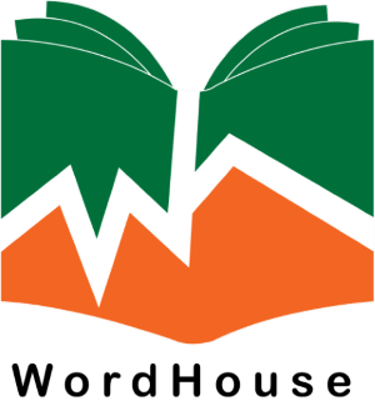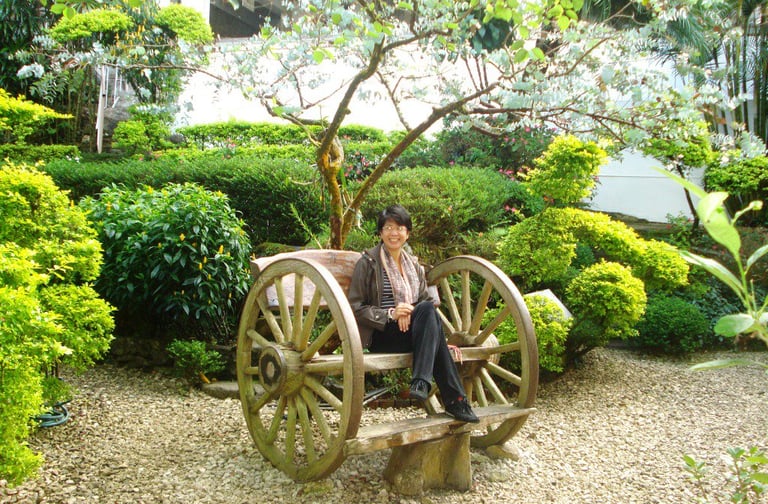Global Historical Fiction to Read (2005–2025) Why the Philippines Needs More
READING AT WORDHOUSEPERSONAL


Building My Dream Reading List of Historical Novels
After reading Pachinko, I found myself wanting to return to the other historical novels on my shelf. Books like All the Light We Cannot See, Lincoln in the Bardo, The Underground Railroad, and Half of a Yellow Sun are historical novels that I could not put down once I started reading them. Just the titles alone were too intriguing for me: luminous, arresting, and full of promise. After perusing my copies, I realized I was right, their titles already signaled the specificity of their histories. Each one announces its subject with precision and authenticity, almost like a doorway into a particular time and struggle.
All the Light We Cannot See gestures toward the blinding fog of war, but also the inner clarity of its young blind protagonist. Lincoln in the Bardo anchors itself in one historical figure, yet through the “bardo” opens up an afterlife of grief, nationhood, and liminality. The Underground Railroad transforms a metaphor into a literal train, insisting that the memory of slavery be both imaginative and concrete. Half of a Yellow Sun condenses the Biafran war into the fragmented symbol of its flag, turning political trauma into something intimate and unforgettable.
What I mean is this: historical novels, even before you read them, often announce their intent through their titles. They carry history not only in their narratives but in their very names, condensed, symbolic, and ready to unfold. At least, this is my experience. And I’d like to find out about other subjects in global history, as the list below hints at through their titles.


Why Historical Novels Matter
Historical fiction fascinates me more than novels set purely in the present. Somehow history is still happening right now, but novels have already set a pattern of knowing. When I read historical novels, I see how acts of remembrance, imagination, and courage bring the rest of the world to me. Cold facts turn into lived experiences that knock at my empathy. Voices and lives made visible in these stories remind me that the contested space of history cannot but leave a legacy for the next generation. Imagination resists erasure and silence.
In this dream reading list, I’ve gathered both traditional and hybrid/postmodern historical novels published between 2005 and 2025. I’d like to trace how different writers from around the world reimagine their histories and keep them alive for us to encounter. With ChatGPT’s help, I mapped the novels geographically and prompted for titles that gained some critical acclaim, not because I don’t want to read the rest, but simply to start somewhere. I’m giving ChatGPT the full benefit of the doubt, especially since many of the titles it surfaced are the very ones I already hoped to read. The years 2005–2025 are parameters set only for convenience, not preference.
One more note: the categories traditional and hybrid/postmodern are my own way of organizing this dream list. They are not exhaustive or final. For instance, I placed The Brief Wondrous Life of Oscar Wao under hybrid because its footnotes, pop culture references, and playful style refuse to follow the straight line of a traditional historical novel. I’ve also marked with asterisks (*) the ones I’ve already read and will be rereading. And I hope these books are well within the budget and are easily accessible either online or as hard copies.


Traditional Historical Novels
Australia (Germany-set)
The Book Thief – Markus Zusak (2005)* International bestseller, Printz Honor
Canada (China)
Do Not Say We Have Nothing – Madeleine Thien (2016) Giller Prize, Booker & Women’s shortlist
Ethiopia
The Shadow King – Maaza Mengiste (2019) Booker shortlist
Ghana/USA
Homegoing – Yaa Gyasi (2016) PEN/Hemingway, NYT Top 10
Nigeria
Half of a Yellow Sun – Chimamanda Ngozi Adichie (2006)* Women’s Prize
Philippines
Ilustrado – Miguel Syjuco (2010)* Man Asian Literary Prize
Russia/Chechnya
A Constellation of Vital Phenomena – Anthony Marra (2013) National Book Award longlist
Grey Bees – Andrey Kurkov (2018/2022 Eng., Ukraine) International bestseller, acclaimed
Slovakia/Germany
The Tattooist of Auschwitz – Heather Morris (2018) #1 NYT bestseller, global hit
South Korea/Japan
Pachinko – Min Jin Lee (2017)* National Book Award finalist, international bestseller
Human Acts – Han Kang (2014/2016 Eng.)* Critically acclaimed
Sri Lanka
The Seven Moons of Maali Almeida – Shehan Karunatilaka (2022) Booker Prize
UK
Wolf Hall – Hilary Mantel (2009) Booker
Bring Up the Bodies – Hilary Mantel (2012) Booker
The Mirror and the Light – Hilary Mantel (2020) Booker finalist
USA
The Underground Railroad – Colson Whitehead (2016)* Pulitzer, National Book Award
The Nickel Boys – Colson Whitehead (2019) Pulitzer
Vietnam
The Mountains Sing – Nguyễn Phan Quế Mai (2020) Bestseller, PEN/Faulkner longlist
Dust Child – Nguyễn Phan Quế Mai (2023) NPR Best Book
Hybrid / Postmodern Historical Novels
Dominican Republic/USA
The Brief Wondrous Life of Oscar Wao – Junot Díaz (2007)* Pulitzer
Israel/Palestine
Apeirogon – Colum McCann (2020) Booker longlist, Dublin Lit Award longlist
Jamaica
A Brief History of Seven Killings – Marlon James (2014) Booker
Philippines
Gun Dealers’ Daughter – Gina Apostol (2012)* PEN/Open Book Award
Insurrecto – Gina Apostol (2018)* NYT Notable Book, PEN finalist
The Revolution According to Raymundo Mata – Gina Apostol (2021 US ed.)* LA Times Best Book
UK/USA
Lincoln in the Bardo – George Saunders (2017)* Booker
The Sympathizer – Viet Thanh Nguyen (2015, Vietnam/USA)* Pulitzer
The Committed – Viet Thanh Nguyen (2021, Vietnam/France) NYT Editors’ Choice
A Focus on China and India, two regions that have a wealth of historical fiction between 2005 and 2025. These novels are available in English (either originally written or translated).
China
Brothers – Yu Hua (2005) Translated into English; sweeping satire of modern Chinese history
Serve the People! – Yan Lianke (2005) Translated into English; sharp political allegory
Snow Flower and the Secret Fan – Lisa See (2005) International bestseller; written in English
River East, River West – Aube Rey Lescure (2024) Critically acclaimed debut; written in English
India
Mahanayak – Vishvas Patil (2005) Translated into English; biographical novel of Subhas Chandra Bose
The Confession of Sultana Daku – Sujit Saraf (2009) Written in English; reimagining the life of a colonial-era bandit
The Book of Everlasting Things – Aanchal Malhotra (2022) International acclaim; a Partition novel of love, memory, and fragrance
Dreaming of a Filipino Historical Fiction List
Beyond this global dream list, I am also dreaming of reading every Filipino writer who has written about their own time. That list deserves its own space, because these writers were not simply writing for awards but out of a deep passion for the ethos of their age. Their voices, whether echoing a particular war or revolution, the shadows of Martial Law, or the contemporary struggles of the Internet age, offer me a long unfolding imagination of Philippine history.
So many Filipino novels revisit the Martial Law era, and that makes sense because of its traumatic impact. But what about other moments, other than Rizal’s? Are there more novels about the struggles of three hundred years under Spanish rule? Other accounts within the 1898 revolution? The American occupation? The Japanese period, and even the short stay of the British in the 1700s? And what about histories from the South, Mindanao, which seems so often left out of the “big” narratives? I want to read more voices, more of the many telling of our layered history.
I am excited for this list and this list will follow soon.
Call for Books
If you’ve read some of these books or know Filipino historical novels worth adding, I’d love your recommendations.
Drop your suggestions in the comments or send them my way. I’m eager to read more fiction on Philippine histories, from any period and perspective.
Let’s go back in time together.




